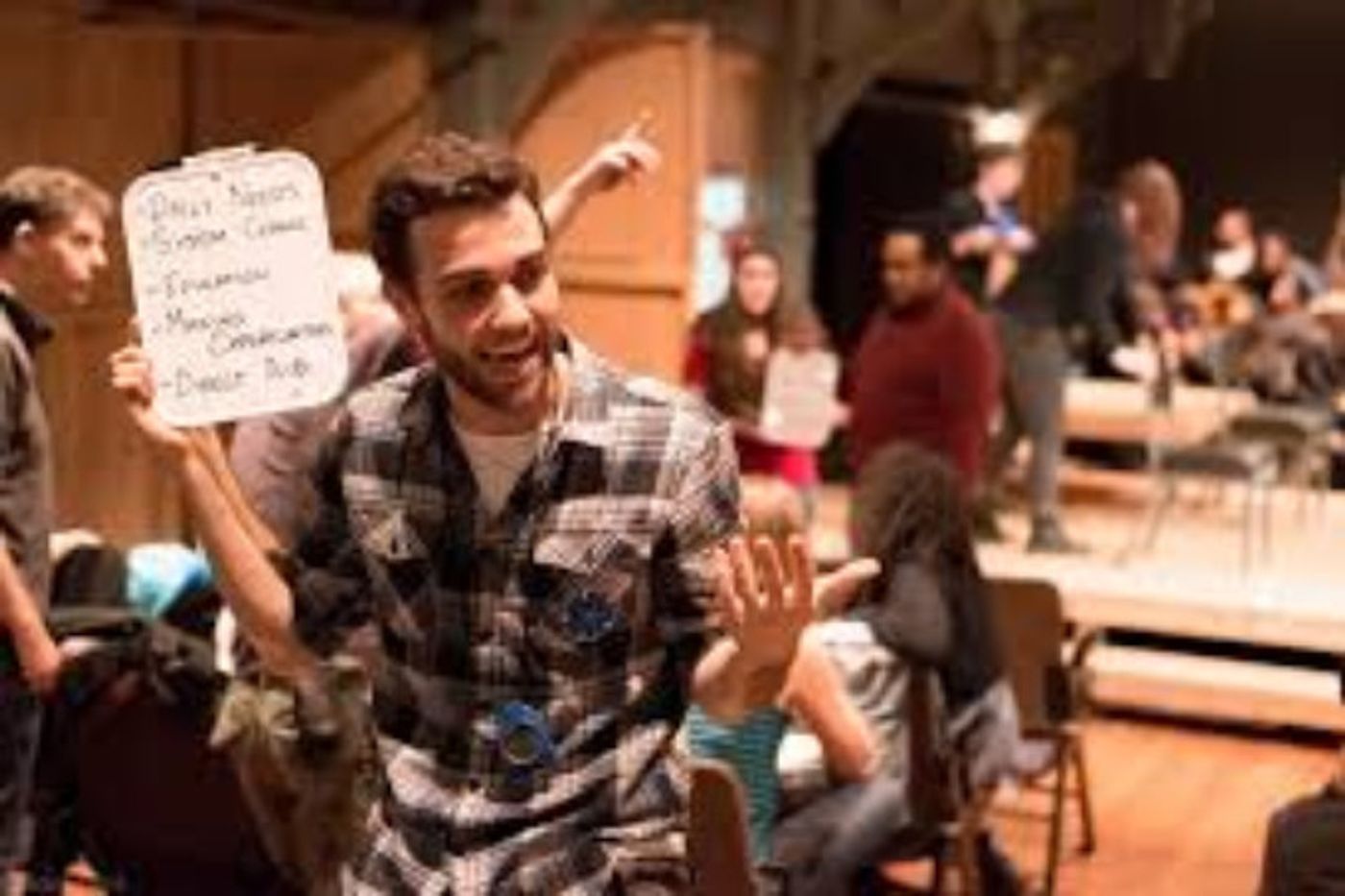Review: Fascinating “How to End Poverty” @ Cleveland Public Theatre

Roy Berko
(Member, American Theatre Critics Association & Cleveland Critics Circle)
One of the purposes of theater is to educate. Another is to get the audience involved psychologically in the process. The ultimate end of many theatrical experiences is for the attenders to leave with a new understanding of life and to carry that message out of the theatre.
"How to End Poverty in 90 Minutes (with 199 People You May or May Not Know)," which recently ended a four performance run at Cleveland Public Theatre, was educational theatre at its best.
The "End Poverty" production was created after a year of research and community-partner-building. Its first presentation was in May 2013 at Northwestern University. Productions have been presented around the country and over $40,000 has been given to community-specific poverty reduction programs.
As the program's website states, "This is not a play; it is not a lecture; it is not an interactive workshop; it is not a physical theatre piece; it is not a public conversation."
It goes on to say, "Most significantly, it's an opportunity to challenge a different audience every show with the question: how do you attack the problem of poverty in America, with a lens specifically focused on your community? Over the course of 90 minutes, the audience will listen, explore and ultimately choose how to spend $1,000 cash from ticket sales sitting onstage at each performance. The show is an experiment in dialogue, in collective decision-making, in shared responsibility, and in the potential for art to help us make our world a better place. It is spectacularly eclectic in form, often delightful and occasionally uncomfortable."
If you had the opportunity to give $1000 to an agency which satisfies the daily needs of its clients, works for system change, or is involved in the field of education, helps making new opportunities or gives direct financial aid, which would you chose. That was the task of the 199 other people who I worked with had as its goal.
We spent an hour and a half, hearing from legislatures, community workers, those in need. We observed short skits acting out the needs of people, heard statistics on where the needs were, listened to appeals, investigated which local areas were the hardest hit. Then, after discussing our thoughts with our "team mates," who included the county commissioner, the Artistic Director of the Cleveland Play House, the minister for religious services for the county jails, several college professors, local performers, lawyers, a newspaper reporter and some who identified themselves as "average citizens," we made our individual decisions.
With our five dollars in hand, we told our group leader on which clothes line to hang our bills. After all the money was attached by clothespins, the money was counted, and our night, Lutheran Metropolitan Ministry, which provides permanent supportive housing, transitional housing treatment, housing vouchers and apartment searching to homeless men, received that night's money.
Our drive home was filled with a lively discussion about what we learned, how the experience had opened out eyes, how wonderful if sociology, community planning and civics classes could be taught with a method such as this theatrical experience a truly practical life-educational experience.
Capsule judgement: If Cleveland Public Theatre ever brings "How to End Poverty in 90 Minutes (with 199 People You May or May Not Know)," back, and they should, make every effort to participate in this theatrical extraordinary learning experience.
Next up at CPT: You are invited into the live studio audience of the World Premiere of Leila Buck's "American Dreams," where you will decide which of three contestants will receive the ultimate prize: citizenship in "the greatest nation on earth." Weaving playful audience engagement with up-to-the-moment questions about immigration and more, this participatory performance explores how we navigate between fear, security, and freedom; who and what we choose to believe-and how those choices come to shape who we are. (February 08, 2018 - March 03, 2018 7:00pm, Thu/Fri/Sat/Mon, James Levin Theatre. Previews February 8 - 10 & 15--No show February 12). For tickets call 216-631-2727 or go on line to www.cptonline.org.
Reader Reviews
Videos

